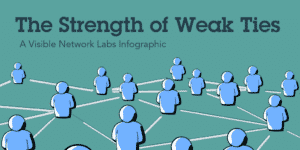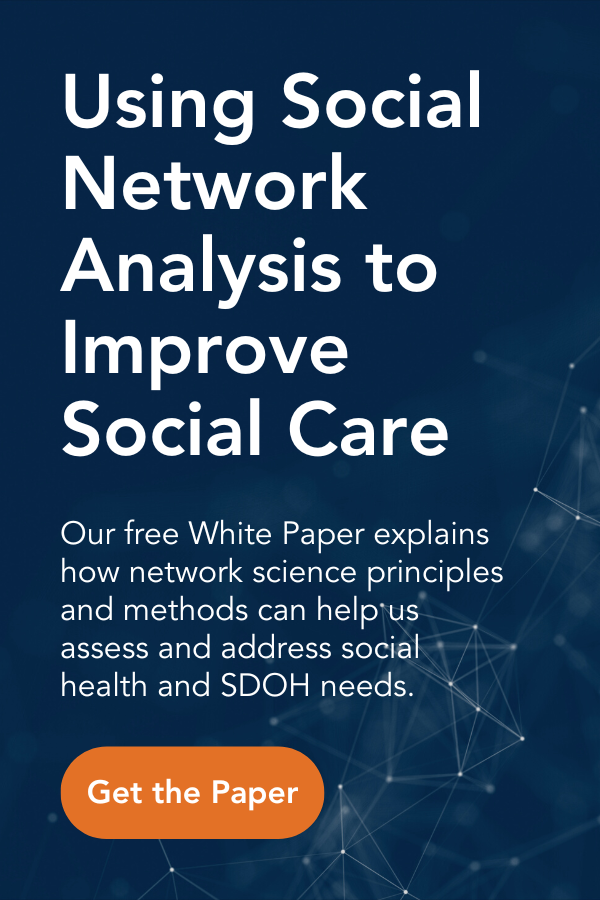
Seven Books on Social Connection
Humans are intrinsically social; Social connection builds trust, it dictates where we go, who we talk to, and our interactions strongly affect our mental state. Connections and the networks have been essential to survival and happiness from the beginning of human existence.
As technology, entertainment, and work increasingly move online, people spend more time in front of screens – largely an isolated and individual activity. In 2020, studies showed that on average, children ages 8-12 in the United States spent 4-6 hours a day watching or using screens, and teens were engaged with screens to 9 hours. While there is much perceived socializing done online, studies have found that people using social media spend only 3.5 percent of their time conducting what are considered social actions, like chatting with friends or commenting on posts.
The seven books listed below involve social connection; some are explicitly tackling the ideas around networks, connections, and issues surrounding our need as humans to be social, while others are riveting, intense stories, that could have only occurred when all the characters are present, fully engaged, and entirely invested in the people around them.
Social Chemistry: Decoding the Patterns of Human Connection - Marissa King
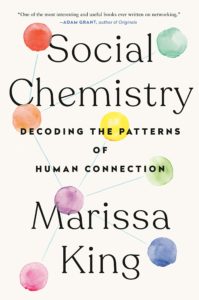
Social Chemistry also lays out three styles of networks: Expansionist, Broker, and Convener. Expansionists are generally extroverted, gregarious folks who foster many connections; Brokers are those who facilitate connections, the lynchpins between organizations, friend groups, or departments in a company, and Conveners have close-knit, insular groups that are likely to overlap in many ways, like co-workers who also do after-work activities together.
The book is mainly research driven, and applies it to interesting stories like that of Mr. Vernon Jordan, described by the New York Times as a “Civil Rights Leader and D.C. Power Broker”, who decades ago, as a college student at Depauw University, showed up for a summer internship at a company in Atlanta, but was denied due to his race. He went on to become a top ally and advisor to former President Bill Clinton and many CEOs of influential companies.
Mr. Jordan, King writes, is someone at the rare intersection of all three networking styles; His ability to foster social connections helped him create and cultivate a substantial network which he continued to add to and build upon. His 80th birthday was held on Martha’s Vineyard, and attendees included former President Obama and former First Lady Michelle Obama, former President Clinton and former Secretary of State Hillary Clinton, Morgan Freeman, and several CEOs of several prominent corporations. At one point before his passing in 2021, Mr. Jordan sat on nine corporate boards, including Xerox, Revlon, Sara Lee, American Express, and Dow Jones & Company.
The Color of Water - James McBride
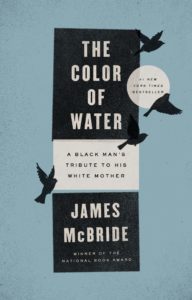
The Color of Water expresses McBride’s, and his mother’s, searches for belonging and social connections in an unforgiving world, where life is easier when people don’t break from convention. He struggles to understand Ruth’s background, as she is Jewish, yet helps found a Baptist Church in Brooklyn; as he watches a newscast on the rise of the Black Panther movement, he is immediately terrified for his white mother. Although the world classifies him as Black; he experiences racism and prejudice from both white and Black people, and questions where he belongs.
Ruth’s tenacity paid off: Mr. McBride and his 11 siblings all went on to college, with Mr. McBride graduating with a Masters Degree in Journalism from Columbia University. In 2015, he was awarded the National Humanities Medal by President Obama “for humanizing the complexities of discussing race in America. Through writings about his own uniquely American story, and his works of fiction informed by our shared history, his moving stories of love display the character of the American family.” He is currently a Distinguished Writer in Residence at New York University.
Bowling Alone - Robert D. Putnam
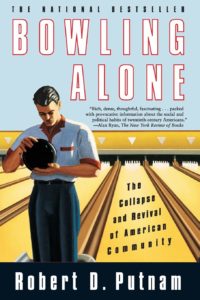
While seemingly not a predicting factor of American’s social habits, Putnam presents bowling statistics, as well as the declining membership numbers of other institutions and groups at the time that were once cornerstones of American society: parent-teacher associations, religious groups, labor unions, Girl and Boy Scouts, Freemasons, Rotary, and Kiwanis to help paint a picture.
Putnam asserts that the lack of social connection and the rise of less robust social networks have lead to increasing mistrust and polarization, resulting in Americans’ opinions of each other following a downward trend: in 1960, 55% of people questioned agreed that “most people can be trusted.” but in studies conducted in the 1980s and 90s, the figure had dropped to around 35%.
Putnam’s comments on how the rise of technology was “individualizing” entertainment through television, the internet, and gaming systems proved to be prescient, and he predicts that virtual-reality, then in its infancy, would further cement the individual aspect of entertainment. Over two decades have passed since its publication, so we can draw our own conclusions on whether Bowling Alone was a strike, or simply a gutter ball. Mr. Putnam is a political scientist and the Peter and Isabel Malkin Professor of Public Policy at the Harvard University John F. Kennedy School of Government.
Together: The Healing Power of Human Connection in a Sometimes Lonely World - Dr. Vivek H. Murthy
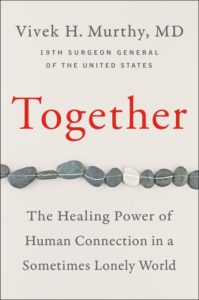
While he was researching and preparing to write Together, Dr. Murthy noticed that loneliness and lack of social connections were among the few issues that garnered large interest from groups across the fractured political spectrum, from young and old folks, and from rural and urban residents equally. Loneliness, Dr. Murthy found, has been experienced by many, or they’ve seen how it affects others. He ties it together with personal stories of his own loneliness in his academic and professional journeys, his uncle’s suicide as a result of his own bout with loneliness and isolation, and the positive examples set by his parents in cultivating community and connection.
As Surgeon General, Dr. Murthy issued an Advisory late last year addressing the youth mental health crisis. The Advisory detailed societal, environmental, community, familial, and individual factors that shape the mental health of youth, and laid out some sobering statistics: “Between 2007 and 2018, suicide rates among youth ages 10-24 in the U.S. increased by 57%. 21 Early estimates from the National Center for Health Statistics suggest there were more than 6,600 deaths by suicide among the 10-24 age group in 2020.”
Random Family - Adrian Nicole LeBlanc
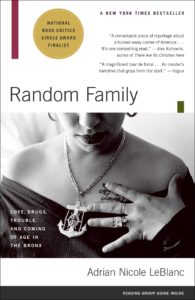
Much more than a sordid love story or a glorification of the destructive years throughout the so-called Crack Era in New York City, Random Family provides a granular look at social connections in a pressure cooker, where family and friends come and go, violence is communication, and love and life are at the highest of stakes. It shows people who are surrounded, but alone; yearning to give and receive love, but due to childhood and generational trauma, are unable to; aspiring to be more and rise from their neighborhood, but the only examples they’ve seen are temporary highs that end with imprisonment or death. Social connections are strained to the ultimate degree, and its effects are heartbreaking, intense, and raw. The people involved are left to pick up the pieces of their lives after friends are murdered, family members move far away to flee the chaos, and main characters end up in federal prison for life. Random Family was a New York Times Best-Seller, the winner of The Anisfield-Wolf Book Award, as well as the Ridenhour Book Prize.
Tribe: On Homecoming and Belonging - Sebastian Junger
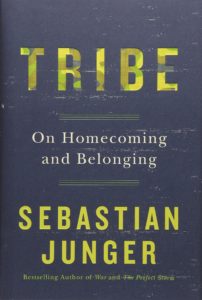
Of American soldiers, and the bonds that are depicted in Tribe, The New York Times’ Matthew B. Crawford said “We see the joys and depravities of a cell of men released from the neutering moral regulation of American society. That society has a mission for them to do, but it cannot avow the means by which it is to be accomplished and must avert its gaze from.” Yet when these men and women return home, we treat them as wounded, different, as if many of us don’t fly American flags, use taglines and bumper stickers to register our support of “The Troops.” The troops are real people, who have risked their lives in support of our way of life. As Crawford says, “To risk one’s life for the common good is to declare oneself outside this cultural logic of acquisitive individualism; the veteran is an outsider to us by definition, and no amount of yellow ribbons can change that fact.”
Homage to Catalonia - George Orwell
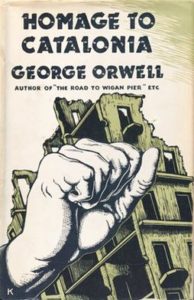
While not explicitly about social connection, Homage to Catalonia was recommended for this list by VNL’s Research and Evaluation Manager Richard Funkhouser, who, when asked about books on the topic, said “The first book that came to mind for me was George Orwell’s Homage to Catalonia. The dynamics of how he negotiates political and social spaces in a highly fractured wartime setting makes me feel like what energizes him to be there, but also ultimately forces him to leave (apart from the war), has a lot to do with social connection.”
About the Author: Will Jacobson
Business Development Representative
Will Jacobson is the Business Development Representative on VNL’s Marketing and Communications Team.
Originally from New York City, Will loves living in Colorado and all the outdoor life it has to offer. He’s also a pretty big foodie! Will holds a degree in marketing from the University of Colorado Denver.
|
|
Thank you for Signing Up |

More Social Care Resources

